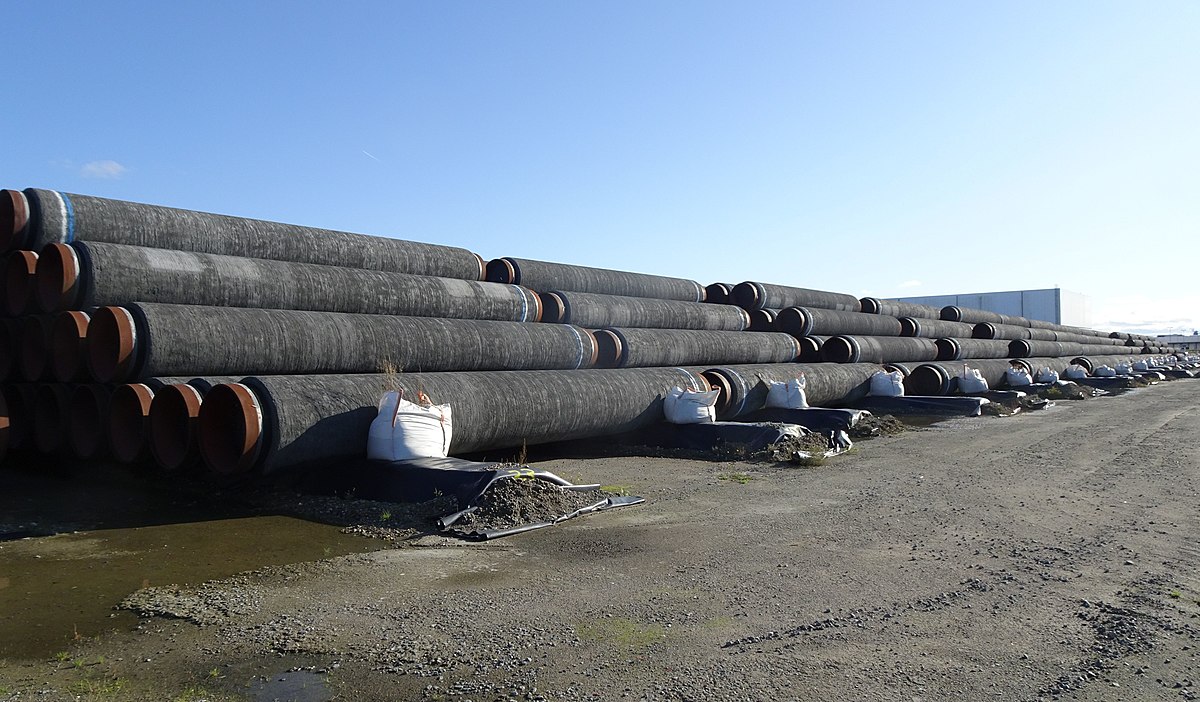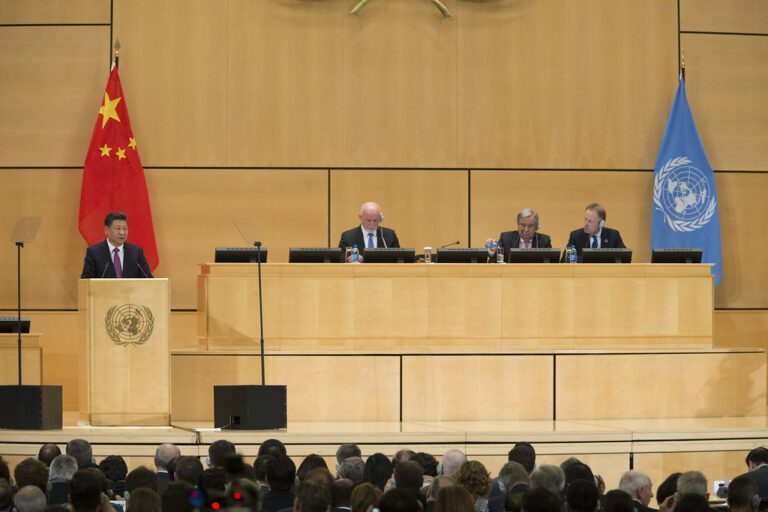Russia Clouds CEE’s China Temptation: Chinese Views on Nord Stream 2

This article is part of a series of articles authored by young, aspiring China scholars under the Future CHOICE initiative.
The recent agreement on the Nord Stream 2 gas pipeline reached between the US and Germany has been a cause of concern in several countries of Central and Eastern Europe (CEE). The US has agreed to no longer oppose the completion of the project, which will ensure Western Europe receives Russian gas to Germany, not only bypassing Baltic states and CEE countries, but also sidelining Ukraine as a transit country.
Even though the Chinese side does not actively comment or seek involvement in this situation, reflecting on the China’s ancillary impacts on the gas pipeline’s considerations are an interesting, and perhaps quite important, exercise for CEE countries.
Winners and Losers
As the disappointment with the US decision regarding the pipeline looms over Ukraine, adding Chinese state media statements to the perspective can reveal the danger of resorting to multi-vector strategies that can in fact result in the strengthening of China’s new world order building ally – Russia.
According to scientists from the Hungarian Center for Economic and Regional Studies, the main beneficiary of the Nord Stream 2 project will be Germany, whose estimated benefits from gas transit will increase by up to 25 percent. Meanwhile, Ukraine is likely to suffer the most, with the Czech Republic, Slovakia, and to a lesser extent Hungary, also feeling impacts. On the negative side, the case may be instructive.
Namely, the situation can serve as a warning that Ukraine’s “third vector” (China oriented) policy may not be in fact a viable political alternative, as current China’s state media narratives can result in reinforcement of belief that Beijing supports Russia’s aggressive posturing, which is obviously not in Ukraine or other CEE countries interest. The Ukrainian state earned around €3 billion a year on gas fees transported through its territory. The gas pipeline at the bottom of the Baltic Sea will cut it off from this source of revenue for good, but also leave Ukraine’s energy security solely in the hands of Russia’s state-owned Gazprom.
China Bets on Big Players
Despite the lack of an official position of the Chinese government on the gas pipeline, the issue has often emerged in Chinese state-backed media.
An entry related to the Nord Stream 2 case appeared on the Twitter profile of the China Plus News website, which is associated with the state-owned China Radio International. It states, “from an outsider’s perspective, this is just a business deal that aims to benefit both Russia and Germany.” The Paper magazine writes that in the case of Nord Stream 2, “the result is clearly a victory for realpolitik” separated from ideological struggles. The nationalist Guancha called the project “Russia’s perfect victory in geopolitics” and at the same time, a US failure.
According to the Chinese state media, the project itself is an example of how ideological differences do not prevent the strengthening of economic relations. The views expressed by Chinese media are probably the best explanation of how China sees the deal, and who it believes to be the most important actors involved.
Germany is perceived by China as an actor with an influential position in the EU and a key economic partner in global supply chains. Russia on the other hand seems to be experiencing a renaissance of good relations with the Middle Kingdom, finding it not only a partner in matters such as the construction of nuclear power plants, but also in creating a common front against the USA.
The issue of Ukraine, deprived of the status of a transit state, is explained in the Chinese media by the country’s “political hostility” towards Russia. This is not the first time when Beijing shows apathy regarding Ukraine’s situation. Chinese reactions to the conflict between Russia and Ukraine in 2014 may indicate that Beijing has no ambition to play a leading role in the region. Officially, China remained neutral during the Russian-Ukrainian conflict. Beijing expressed general support for the principle of territorial integrity of states but abstained in the UN Security Council’s vote on the illegality of the annexation. Beijing perceives Ukraine’s 2014 protests and the subsequent pro-Western pivot as inspired by Western leaders in order to knock it out of the position of balancing between the West and Russia, a position which is recognized by Beijing as “natural” for this country.
According to China Plus News, Ukrainians should be grateful for the German-American promises (establishment of $1 billion Green Fund for Ukraine to support its energy transition and energy security), which are to compensate for Nord Stream 2’s completion. This rhetoric fits well into Beijing’s “win-win” approach to international relations since Ukraine should get its economic piece of cake after all.
Disappointing, But Unsurprising
While the issue of Nord Stream 2 does not seem to be directly related to China and its interests at first glance, views of the Chinese media are an important indication for CEE countries. While not authoritative, the narratives presented indicate China is not particularly attuned to supporting their strategic interests.
The Nord Stream 2 case, together with the problems of 17+1 serves as a painful example of the Chinese approach to CEE, underlining the fact that it is not a priority region for Beijing’s diplomacy. As the Eastern European countries grapple with the threats of Russian aggression (Zapad-2021 military exercises being the most recent example of Russian muscle-flexing, along with alleged Russian involvement in Belarusian refugee hybrid warfare), Chinese narratives about Russia’s geopolitical victory do not serve diplomatic relations well.
Right now, it is hardly possible for China to become a viable alternative to political and strategic cooperation with other Western countries, especially in the security domain. Statements of Chinese state-owned media that encourage Russian aggression in the CEE are also likely to amplify an atmosphere of fear and suspicion.
Written by
Patryk Szczotka
p_szczotkaPatryk Szczotka is an Analyst at the Warsaw Institute and an MSc student in the "China and International Relations" double degree program at Aalborg University and the University of International Relations in Beijing. His research interests include political and economic relations between the CEE countries and the PRC.


